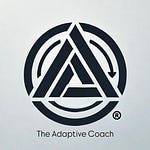Link to Spotify:
Summary
In this episode of the Adaptive Coach Podcast, I speak with Philip O'Callaghan about nonlinear pedagogy and its implications for coaching. Philip chats about the principles of nonlinear pedagogy, including attentional focus, functional variability, and the constraints led approach within his own practice. Philip shares insights from his experience as a tennis coach and physical education teacher, emphasising the importance of adapting coaching methods to individual learners and the dynamic nature of skill acquisition. The conversation also addresses misconceptions about the role of the coach, the challenges of assessment in nonlinear learning, and the significance of self-organization and affordances in coaching practice.
Takeaways
Nonlinear pedagogy views learners as complex adaptive systems.
Errors in practice are essential for skill exploration.
Attentional focus should be directed towards the environment.
Functional variability allows learners to adapt their movements.
Coaches should manipulate constraints to guide learning.
The role of the coach is to design learning environments.
Self-organisation in learning is not always optimal.
Assessment methods should reflect the messy nature of learning.
Analogies can enhance understanding and retention in coaching.
Coaches should be comfortable making mistakes to model adaptability.
Sound Bites
"Learning is messy."
"Errors are useful for exploring."
"Start making small subtle changes."
Chapters
00:00 Introduction to Nonlinear Pedagogy
04:15 Understanding Nonlinear Pedagogy
06:59 Key Principles of Nonlinear Pedagogy
09:55 Representative Learning Design Explained
13:08 Attentional Focus in Coaching
16:01 Functional Variability in Practice
18:49 The Role of Analogies in Coaching
22:04 Information Movement Coupling
24:56 Manipulation of Constraints in Coaching
28:03 Constraints Led Approach Overview
37:55 Understanding Constraints in Coaching
42:08 Differences Between Constraints-Led and Game-Based Approaches
45:31 The Role of the Coach in Constraints-Led Approach
50:30 Self-Organization and Emergent Behavior in Coaching
53:16 The Concept of Affordances in Sports
56:12 Addressing Errors and Movement Patterns in Coaching
01:01:25 The Challenges of Assessment in Nonlinear Pedagogy












Share this post